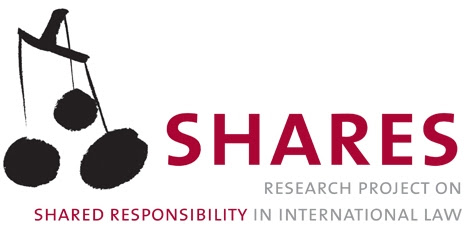Posted by: Jacobs Dov
On the 21 March 2011, after six years of research, the Special Representative of the Secretary-General on the issue of human rights and transnational corporations issued its final report which includes its guiding principles on Business and Human Rights. The general idea of the guidelines is to guarantee the implementation of the UN “Protect, Respect and Remedy” Framework. In this sense, the guidelines are a combination of references to “hard rules” and recommendations to improve prevention of violations of human rights.
A few brief points of interest, both in general and in relation to Shared Responsibility.
First of all, this is another striking confirmation of the trend towards the horizontalisation of human rights. Not only do States have Human Rights obligations, but so do business enterprises (see guideline 11). The idea that private entities can violate “human rights” has certainly entered the public domain, but its conceptual consequences are often ignored. What does it say of the nature of human rights? What does it mean for other branches of law, such as tort law or criminal law?
Second of all, it is interesting to see that, contrary to the trend in many human rights institutions towards the ‘criminal law’-oriented approach to punishing human rights violations, the guidelines provide for a wide range of possible remedies, which they call ‘grievance mechanisms’, and don’t particularly insist on criminal investigations and sanctions. It would be interesting to know if this can be an important UN contribution to this debate, or is just circumscribed to the area of the guidelines.
Third of all, the guidelines require that States promote human rights in the multilateral institutions they are members of (guideline 10). This is certainly interesting from the point of view of the unity/fragmentation debate, and more specifically in relation to the debate that exists in most specific regimes of international law about the articulation with HR law.
Finally, this could be a perfect case study for Shared Responsibility in International Law. For one, the guidelines clearly indicate that States should minimise human rights violations by businesses in other countries, thus going beyond the traditional jurisdictional criteria for HR obligations. This necessarily leads to questions of joint responsibility between various States (the State where the violations occured, and the State of ‘origin’ of the business). Second of all, in the relation between the States and the Businesses, there is no clear indication of the distribution of responsibility should any human rights violations occur. Finally, the guidelines, if they were to evolve as ‘solid’ obligations, could more particularly have far-reaching consequences in conflict situations. Indeed, the guidelines require that States support business respect for Human Rights in conflict-affected areas (guideline 7), and consider that businesses should “treat the risk of causing or contributing to human rights abuses as a legal compliance issue wherever they operate” (guideline 23, my emphasis). This is a strong obligation based on risk and could possibly cover any business with any government in the world that might have a poor track-record in human rights, more particularly in relation to graves breaches of international criminal law.
In a nutshell, if you combine this with the extra-territorial jurisdiction mentioned above and the traditional debate about ‘complicity’ of States and businesses in war-torn countries, you have an elaborate web of possibly responsible entities, with no clear indication as to how exactly to distribute responsibility among them. In this sense, and if only for that, the guidelines should be welcomed as yet another testimony to the utility of SHARES…
